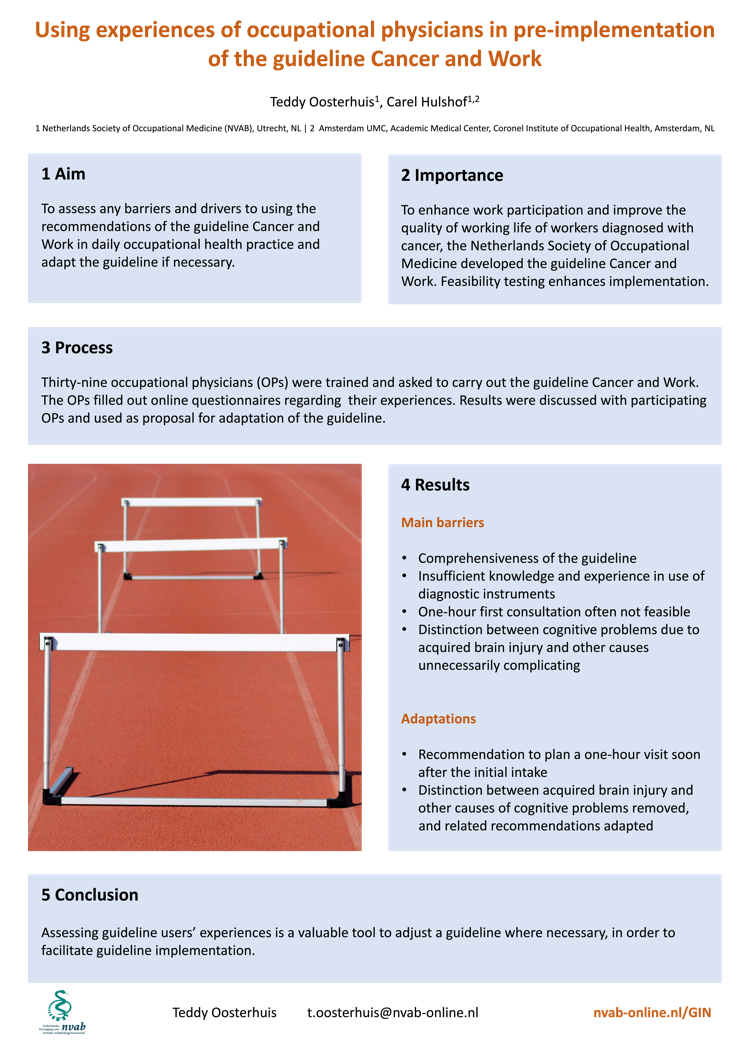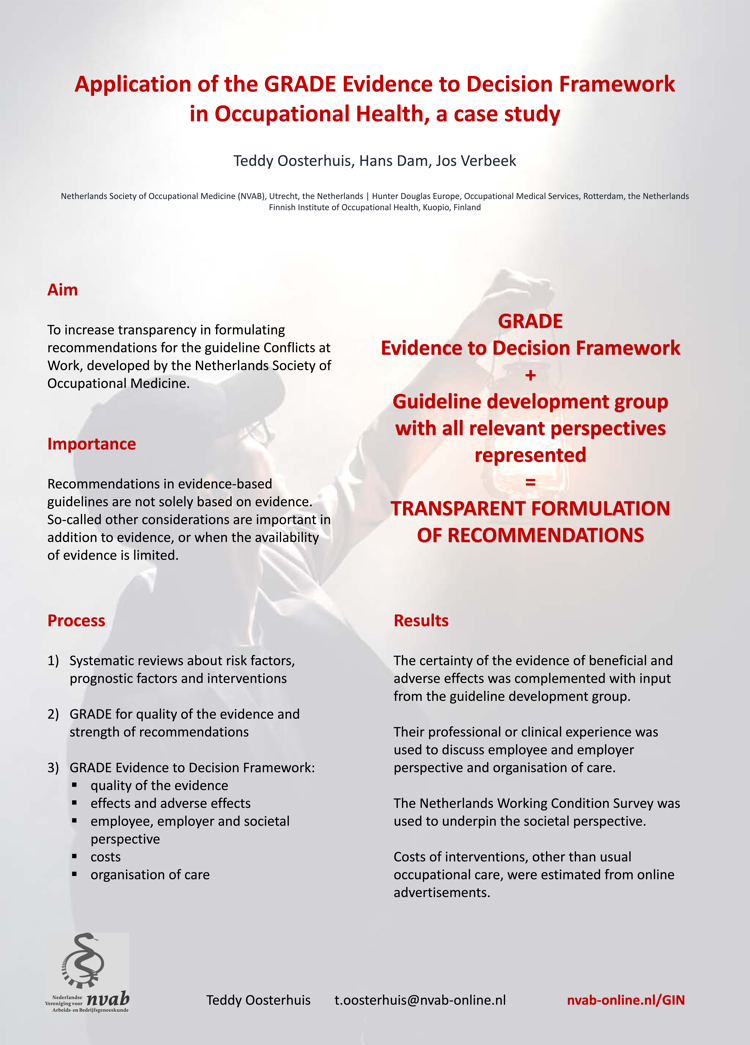Netherlands Society of Occupational Medicine - G-I-N Conference
Netherlands Society of Occupational Medicine
Work is one of the most important parts of our lives. Work is not only important to make a living, it also provides us with a sense of belonging. Through social contacts and being able to contribute. That is why the main focus of the Netherlands Society of Occupational Medicine is work. The Society aims to promote occupational medicine as a scientific field and a profession. In this respect, an important task is to develop, update and implement clinical guidelines for occupational physicians. These guidelines are used to increase the quality of care for workers. To synthesize the rapidly increasing amount of information. To decrease variation in clinical practice. To support and enhance evidence-based medicine.

GIN 2021 Future Forward; Relevant, implementable and sustainable guidelines
The 2021 conference took place online from 25-27 October, for the first time a fully virtual event. Teddy Oosterhuis, guidelines co-ordinator at The Netherlands Society of Occupational Medicine (NVAB) presented the preliminary results of an assessment of guideline use to inform implementation efforts within a professional association. The assessment consisted of 9 group interviews and 13 individual interviews with occupational physicians and trainees, quality managers of large occupational health services and representatives of both Dutch schools of occupational medicine. Within the NVAB as a networking organisation, professionals assessed implementation strategies for guidelines, based on users' needs and preferences shared in the interviews. Criteria were feasability and effectiveness.
The implementation strategy with the highest score on effectiveness and feasibility was education (about a specific guideline). From the interviews we know that occupational physicians prefer small group interactive sessions, led by an occupational physician who was member of the guideline panel. Linking a case and the guideline, and discussing barriers for guidelines adherence (behavioural and practical issues) should be discussed. The second highest score was for developing a concise yet short guideline summary. The exact summary format needs to be defined and tested.

G-I-N & JBI Conference 2019
One of the conference themes was ‘Guideline development processes’. The Netherlands Society of Occupational Medicine presented two posters, showcasing different aspects of the guideline development process. The first poster described the feasibility test of the guideline Cancer and Work. Experiences of occupational physicians were used to adapt the guideline, to facilitate implementation of the guideline. The second poster showed how the GRADE Evidence to decision framework was used to formulate recommendations of the guideline Conflicts at work. You can read more and download the posters.
Using experiences of occupational physicians in pre-implementation of the guideline Cancer and Work
Background
The rising incidence of cancer affects many people at working age. Continuing employment shows to be important for many cancer survivors; work is helpful in regaining a sense of normality and is positively associated with health-related quality of life. The Netherlands Society of Occupational Medicine (NVAB) developed an evidence based guideline on cancer and work. It focuses on interventions to return to work in general, cancer-related fatigue and work-related problems due to mental problems or cognitive disorders. Feasibility testing is expected to enhance implementation of the guideline, by assessing barriers and drivers to using the recommendations of the guideline in daily occupational health practice and subsequently adapting the guideline where necessary.
Download the poster
Application of the GRADE Evidence to Decision Framework in Occupational Health, a case study
Background
Recommendations in evidence-based guidelines are not solely based on evidence. Other considerations are important, too, particularly when the availability of evidence is limited. This was also the case when the Netherlands Society of Occupational Medicine (NVAB) developed the guideline Conflicts at work. For this guideline we used a new approach to further increase transparency in formulating recommendations.


